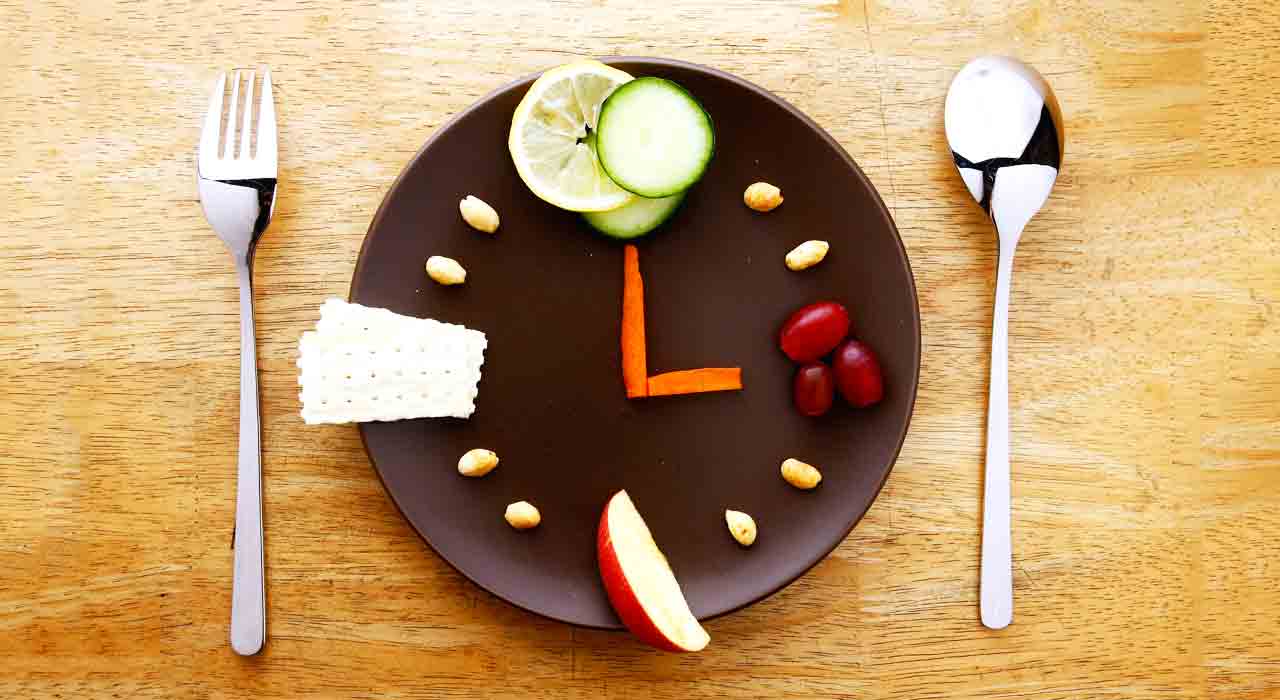Nutrition
How To Eat Properly When Pushed For Time
Your daily to-do list might be thicker than the phone book but that’s no excuse to annihilate the food off your plate in seconds.
Eating quickly stops the release of hormones in your gut that tell your brain you’re feeling full, found research published in the Journal of Clinical Endocrinology & Metabolism. So if you’re pushed for time then eating fast is not the solution. But eating slowly isn’t the only way to serve up fast results, so we’ve come up with all the methods you can use to eat healthy when the clock is ticking.
Flex to eat less
Cut down the time you spend eating with the aid of a little trick: tensing your muscles. A study in the Journal of Consumer Research says flexing any muscles can shore up self-control when facing temptation, although researchers found this only helped when the choice aligned with the goals, for example: to eat less.
They also discovered that tightening your muscles only helped at the exact moment people were struggling with a self-control dilemma. If they did it too early, it didn’t work.
Eat with someone with similar goals
Trying to rush through a quick meal to eat fewer calories? Don’t. Rather, eat with someone with a similar mindset. Research at the University of New South Wales, Australia, found that tucking in opposite a light eater will help you eat a lot less. Plus, you’ll be finished sooner, since your goals are aligned.
Cutting it fine
If you want to feel more satisfied with a small amount of food then get busy with your knife and fork. Research at Arizona State University, US, found that chopping your food into smaller pieces helps you eat less. Stick to mouthfuls the size of your thumb to trick yourself leaner. Remember: smaller doesn’t mean faster, so slow down.
Combine and conquer
If you need protein but you’ve little time to go shopping then try this quick solution: combine any high-carb food (rice, pasta, oats, breads) with a legume (peas, peanuts, beans) or vegetables, and you’ll create a protein source equal to a steak, at half the cost. A quick snack of beans on toast, anyone?
Sleep more, eat less
If you want to spend less time eating then you should spend more time sleeping, the night before, that is. You see, people who lost up to three hours’ sleep ate approximately 200 more calories the next day, in snacks, than those who slept for a solid eight hours, found research at the University of Chicago, US. You’ll save on time and calories by making sure you hit the pillow at a reasonable hour.
You don’t need to eat six times a day
If you have a job that demands your full attention then having a snack break every two or three hours isn’t a practice that many bosses would view as profit driven. Fortunately, research in the British Medical Journal found that, with the exception of one study, there’s no evidence to suggest that eating several small meals throughout the day actually helps you lose weight. Researchers went on to state that if you eat more calories than you use up, you’ll gain weight regardless of whether you eat two meals or 10 each day.
There’s no doubt that eating regularly does keep hunger at bay, but sticking to three meals a day when you’re busy won’t crash your diet. So brush up on your arithmetic skills to ensure you’re creating an energy deficit.
Curb your evolutionary responses
It’s no surprise that anger and obesity are connected, but if you’re annoyed and in a rush, wait until you’ve calmed down before you dig in. Being angry can make you want to eat more, found research in Psychological Science.
In the past, this response was successful during times of famine because anger helped you get food. Fortunately, you live in the modern age where food is readily available, so chill out before you big out and you’ll eat less and save time.
Keep off the sports drinks
Sports drinks have their place: during sport. They’re not for when you’re after a quick energy fix, because while you might feel energised after the first few sips, an hour later you’ll have slower reactions and more lapses in concentration than if you hadn’t drunk anything at all, found research at the University of Loughborough. Energy can be easy-come easy-go.
Get chewing
Fresh breath has just got another upside. Chewing sugar-free gum helped people reduce afternoon cravings for sweet snacks and saw them eat 60 fewer calories, found research by the Federation of American Societies for Experimental Biology. You’ll get more time to tick off your lists and breathe easier, well, for those around you, anyway.
Find nutritional information and more in every issue of TRAIN for HER magazine.














